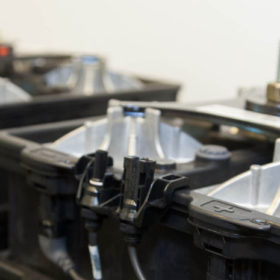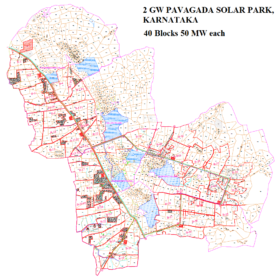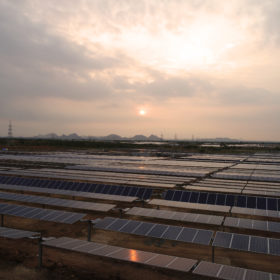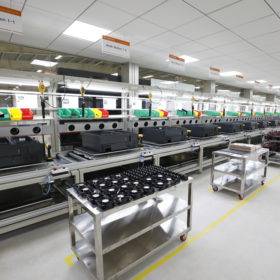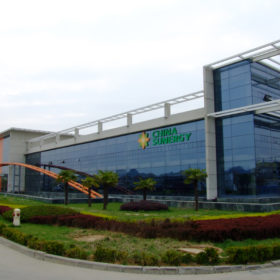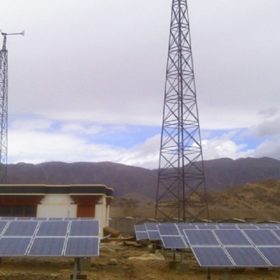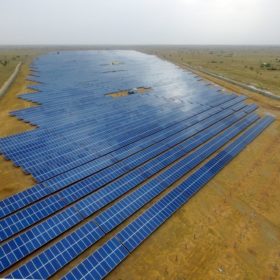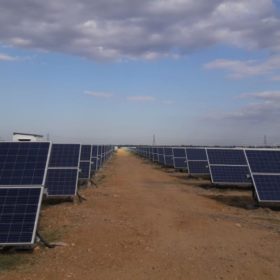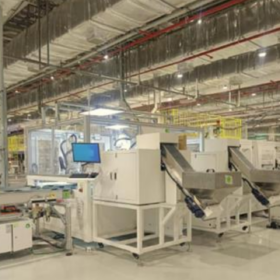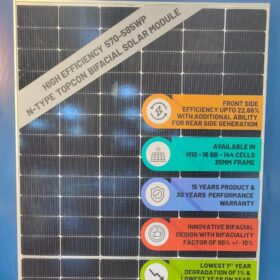Avaada raises Rs1000 crore to fund its 2.4 GW solar projects
Avaada Energy has raised the funds from the Asian Development Bank and European development institutions. The PV developer will use the amount to finance 2.4 GW of the 5 GW of solar capacity it hopes to secure over the next two years.
Tata AutoComp partners China’s Guoxuan to make Lithium battery packs for EVs
The joint venture has started a prototype manufacturing operation in Pune, India, to design, engineer, manufacture and supply Lithium-ion battery packs for 4-wheeler electric vehicles in India.
ReNew Power commissions 300 MW solar plant in Pavagada Solar Park
The 300 MW solar plant at the Pavagada Solar Park, located in Tumkur district of Karnataka, is ReNew Power’s largest solar plant commissioned in terms of capacity till date. It is said to be the first utility-scale solar plant in India to use high-efficiency mono PERC solar modules.
Suzlon sells two more solar subsidiaries to Ostro Energy
Suzlon Energy is selling Shreyas Solarfarms and Aalok Solarfarms to Ostro Energy—a wholly owned subsidiary of independent power producer ReNew Power—for Rs 19.87 crore and Rs 9.93 crore, respectively.
Indian solar market leaders for 2018
ACME Solar installed the largest utility-scale solar capacity in 2018. It also had the largest project pipeline at the end of 2018, closely followed by SB Energy and Azure Power. While modules from China’s ZnShine were used the most, the imposition of the safeguard duty helped domestic manufacturers to capture a larger share of the market compared to 2017, according to clean energy consulting firm Mercom Communications.
MNRE issues guidelines for approval of solar inverters
India’s Ministry of New & Renewable Energy (MNRE) has issued guidelines for solar PV inverter manufacturers to get their products tested and approved by Bureau of India Standards (BIS) certified labs. These guidelines apply to off-grid, grid-tie and hybrid inverters of capacities up to 150 KW.
Solar module supply: CSUN refutes contract breach claims, says it’s an economic dispute
“This case is an economic dispute arising from complicated domestic and foreign situations such as India’s 25% security tax and China’s ‘May 31’ Policy. It is not our company’s unilateral breach of contracts. Any economic disputes arising from commercial activities shall be handled by the court and relevant judicial institutions,” said the Chinese PV module supplier a week after India’s Ministry of New and Renewable Energy (MNRE) issued advisory against procuring solar modules from CSUN.
PTC Financial joins USICEF initiative to fund distributed solar projects
Infrastructure finance provider PTC India Financial Services (PFS) has partnered with U.S.-India Clean Energy Finance (USICEF) initiative to fund the most promising, investment-ready distributed solar projects in India.
NHPC tenders 40 MW solar project in Odisha
National Hydroelectric Power Corporation (NHPC) has invited online bids for development of 40 MW grid-connected crystalline PV solar power project in District Ganjam of Odisha. The project will be awarded through domestic competitive bidding followed by reverse action.
The long read: Implementing standards
While Bureau of India Standards (BIS) certification is an honest attempt by the Indian government to mitigate risks associated with poor quality of modules, there are several reasons why this particular objective is currently not being met. pv magazine India’s Uma Gupta investigates India’s efforts to ensure quality in its booming PV industry.


